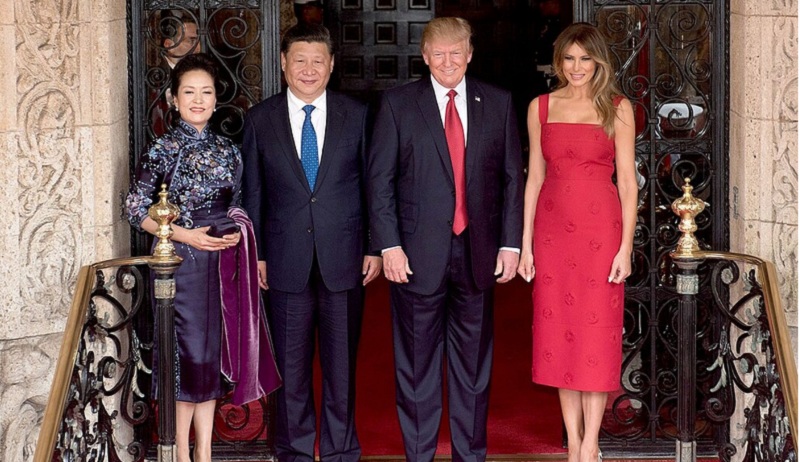By Mandar P. Oak
For much of the post–Cold War era, America believed it stood at the end of history: economically dominant, militarily unrivalled, and morally self-assured. The Cold War had been won, democracy and capitalism appeared to be spreading, and no rival superpower loomed on the horizon.
But the last two decades have chipped away at that illusion. The 2008 financial crisis, failed wars in Afghanistan and Iraq, rising inequality, and the emergence of China as a peer competitor have left America less confident, less cohesive, and less in control.
Donald Trump’s rise is often described as an aberration, but perhaps it is better understood as a reflection of a deeper national malaise—a superpower unsettled by its waning dominance and struggling to reconcile its global stature with its internal disarray. His economic nationalism, disdain for alliances, and autocratic rhetoric emerge not in spite of America’s decline but because of it. Trump’s rise may seem like a political earthquake, but the tectonic plates have been shifting beneath America for years—eroding the belief that the country is still entitled to its manifest destiny.
The mirage of American exceptionalism
One of the clearest casualties of these shifts has been the myth of American exceptionalism—once buoyed by post-Second World War prosperity and Cold War victory, now unravelling in the face of economic and geopolitical disruption.
The optimism of globalisation, which promised shared prosperity and the spread of democracy, has given way to widespread disillusionment. Industrial decline has hollowed out the American Midwest, working-class wages have stagnated, and inequality has soared. Meanwhile, America’s ability to shape international events appears increasingly limited, from failures in Iraq and Afghanistan to the expanding influence of autocracies such as Russia and China.
For many Americans, particularly those outside coastal urban centres, the promise of the American dream feels betrayed. Into this vacuum steps Donald Trump, offering a message of restoration rather than adaptation. His campaign slogan, Make America Great Again, is not a policy blueprint but a nostalgic invocation—an appeal to a time when America felt powerful, prosperous, and in control of its destiny.
Economic nationalism as backlash
Trump’s economic policy marks a sharp break from the neoliberal consensus that has dominated Washington since the Reagan era. Rather than championing free trade and deregulation, he embraces protectionism and economic nationalism. He has followed through on longstanding promises to impose tariffs on allies and adversaries alike, pulled out of multilateral trade agreements, and vowed to bring manufacturing jobs “back home”.
His rise has been fuelled, in part, by a popular revolt against the consequences of globalisation. The basic premise of economic theory holds that while international trade creates winners and losers, it benefits society as a whole—if the gains are redistributed effectively. That “if” depends on robust institutions: social safety nets, worker retraining programmes, and redistributive mechanisms.
But as neoliberalism advanced in the U.S., it eroded those very provisions. The welfare state weakened just as industrial jobs vanished, and the promise that a rising tide would lift all boats proved hollow.
What emerged instead was a hollowed-out version of globalisation—free-flowing capital and goods without the compensatory support for those left behind. Factories closed, towns decayed, and working-class communities were left with little but resentment.
In this context, Trump’s protectionism—though economically incoherent—resonates. His proposals often sound outlandish and knee-jerk, but it is precisely in their extremity that they reflect a deeper desperation, one that resonates with a constituency that feels unheard, unseen, and left behind. He offers not solutions but recognition: an acknowledgement that the system no longer works for millions.
Rather than reimagining a competitive economy for a globalised era, Trump’s policies reflect a desire to freeze time—reviving coal, punishing outsourcing, and demonising immigrants. His economic nationalism is not merely a rejection of failed policy; it is a rejection of a broken social contract.
And just as he redraws the lines of domestic economic consensus, he applies the same disruptive instincts abroad—challenging America’s traditional role as a global leader.
Foreign policy: From global steward to transactional actor
Nowhere is the shift more evident than in Trump’s foreign policy. For decades, the U.S. has seen itself as a global steward—an imperfect but committed champion of liberal internationalism. Trump, by contrast, approaches foreign relations through a transactional, zero-sum lens. Alliances are scrutinised for short-term costs rather than long-term shared values. Commitments to NATO are questioned. Long-standing relationships in Asia and Europe are destabilised.
Trump’s disdain for Europe does not stem from viewing it as a threat but from a cold transactional logic: the belief that America’s security commitment to Europe is outdated. With the Soviet Union gone and Russia no longer the unified threat it once was, Trump questions NATO’s relevance. He sees European nations as free-riding on American military guarantees—and fears they would continue to do so if the U.S. were to pivot towards confronting China, a threat they do not perceive with the same urgency.
Underlying Trump’s transactional approach is a sobering recognition: a central premise of US policy toward China was fatally flawed. American policymakers once believed that integrating China into the global economy would inevitably lead to political liberalisation—that capitalism would serve as a Trojan horse for democracy. But in retrospect, it is China’s authoritarian model—defined by centralised control, attacks on the press, and digital surveillance—that has gained unsettling traction in American political life.
The Trump era has seen rising tolerance for executive overreach, the erosion of institutional checks, and a concerted effort to delegitimise not just the media but also academic and scientific institutions. What was once unthinkable now feels eerily familiar—proof that the ideological contagion has not flowed into China but outward from it.
Trump’s foreign policy posture—withdrawn, unpredictable, and often antagonistic—reflects more than personal impulse; it embodies a broader national fatigue with global leadership. The post–Cold War order demands vision, patience, and multilateral cooperation. Trump offers none of these. His America is not shaping the world—it is retreating from it.
The cultural dimension: Decline and identity
What appears as economic and geopolitical turbulence is also a cultural reckoning. For decades, America’s identity has been wrapped in the belief that it led the world not only through markets and might but through meaning—through the values and ideals it claimed to embody.
However, as demographic change, multiculturalism, and challenges to traditional hierarchies reshape the nation, that belief has come under strain. For many, these shifts represent not progress but displacement—fuelling a backlash among those who feel their place in the American story is being rewritten or erased. Trump’s appeal to “greatness” is as much a cultural signal as an economic one—a yearning to preserve a version of America that many so-called heritage Americans feel is slipping away.
This cultural anxiety—rooted in race, religion, and nostalgia—remains a cornerstone of his appeal. For many, the sense of decline is not merely material—it is existential. Trump channels not only economic frustration but also a psychological need for affirmation: to feel seen, remembered, and in control once again.
A reflection, not an aberration
It is tempting to view Trump as a historical detour—an aberration from the American trajectory. But doing so would obscure the larger forces at work. His presidency is not the cause of America’s strategic confusion; it is the consequence. He amplifies divisions that have long simmered beneath the surface: disillusionment with institutions, fatigue with globalisation, and uncertainty about America’s role in the world.
As the United States navigates a multipolar future, the deeper challenge is not just geopolitical but psychological. Can a nation that has long defined itself through dominance adapt to a world it no longer controls?
Trump is not the disease but a fever—the system’s reaction to underlying infection. Whether the country recovers will depend not on one leader but on whether America can redefine its strength: not through supremacy, but through resilience, adaptability, and the humility to share power in a changing world.
Mandar Oak is an Associate Professor in the School of Economics and Public Policy, The University of Adelaide. He works in the fields of economic development, political economy and public economics.
Originally published under Creative Commons by 360info™.















